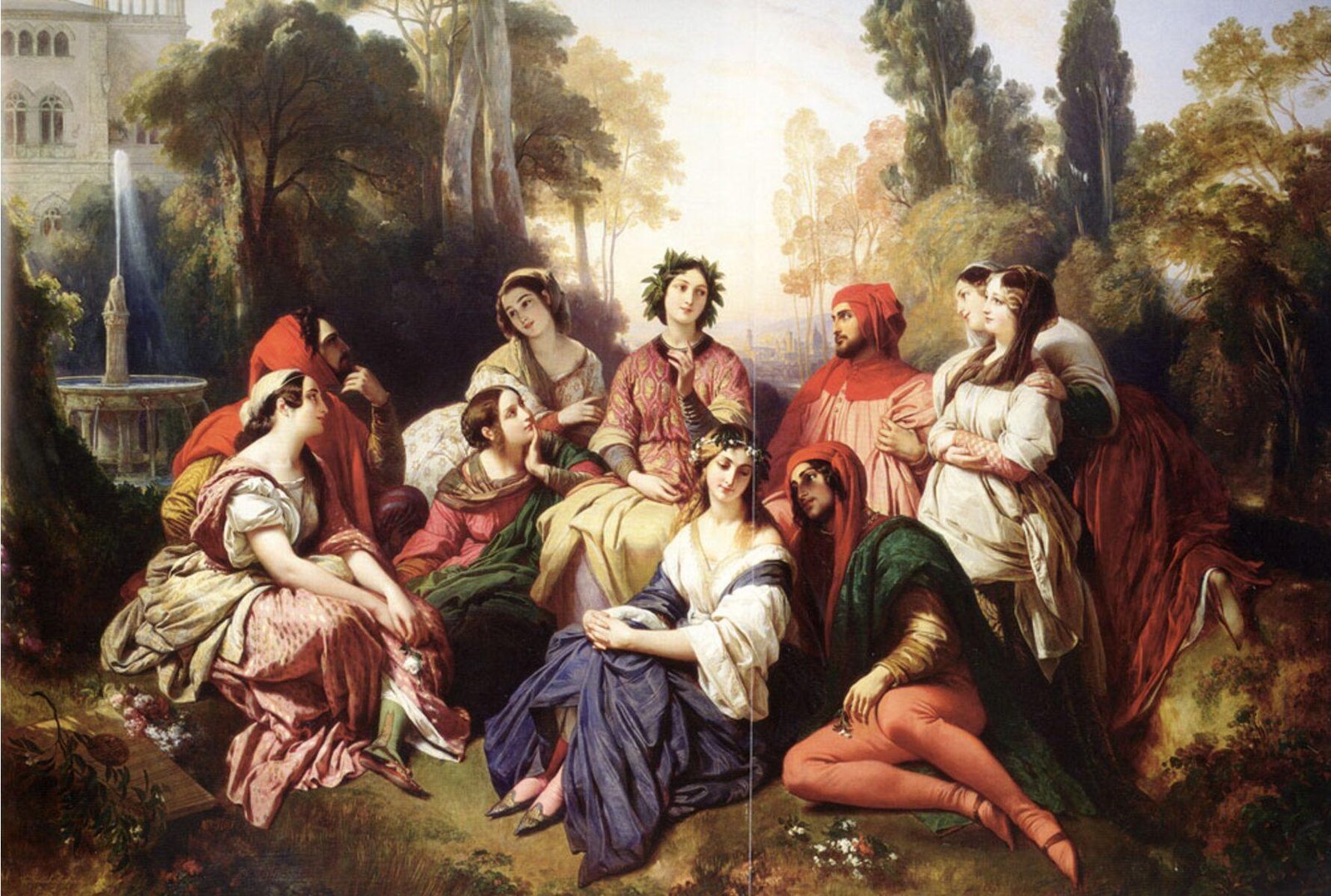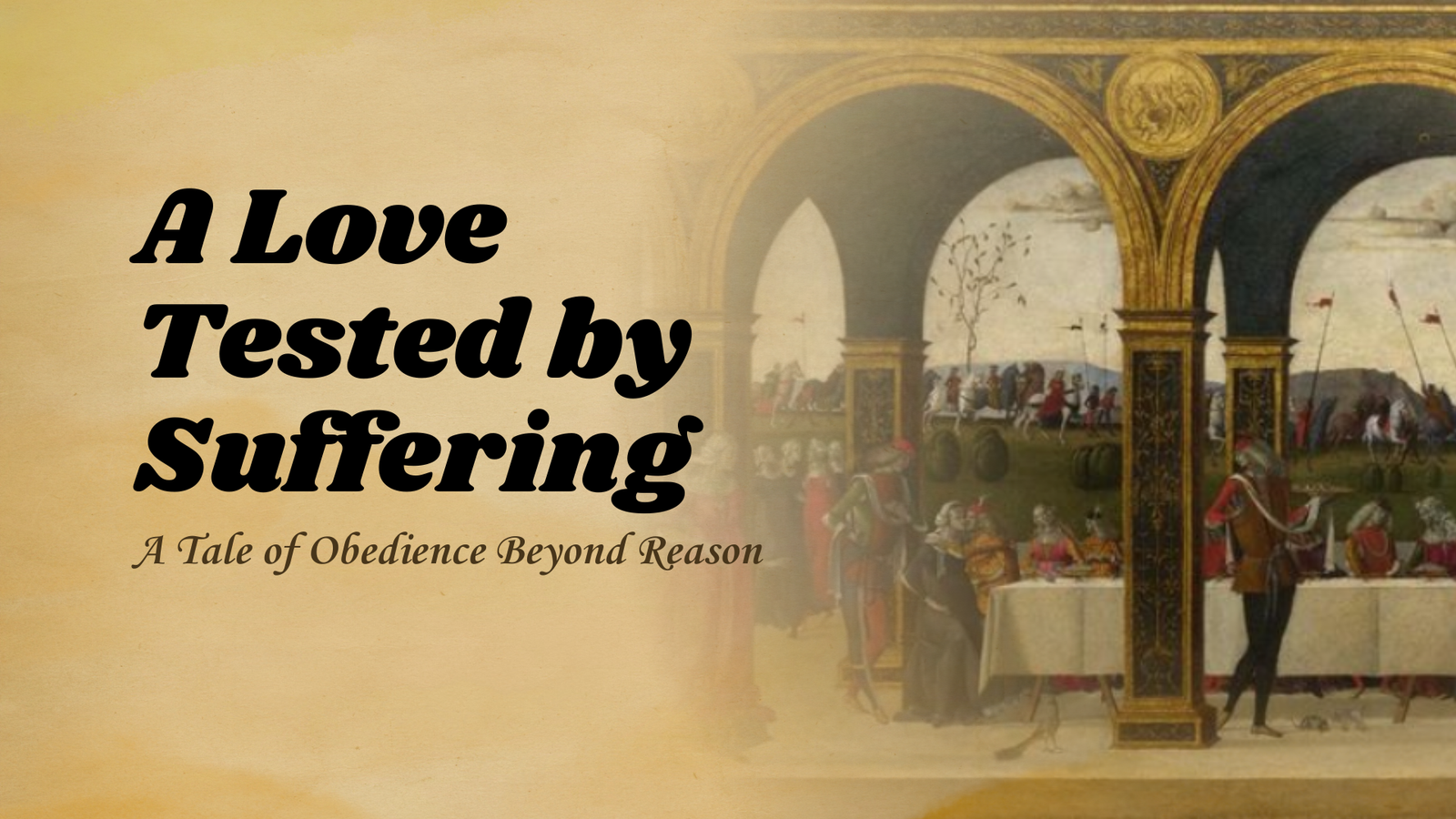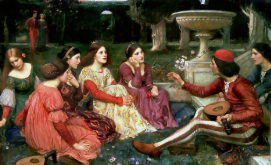The Clever Wife: Wit, Gender, and Justice in Boccaccio's Decameron

Introduction
Giovanni Boccaccio's Decameron, a collection of novellas written during the calamitous Black Death, offers a captivating glimpse into 14th-century Italian society. This analysis delves into Day VI, Novel 9, focusing on the story of Madonna Filippa, exploring its central themes of wit, gender dynamics, and the ingenious subversion of patriarchal justice. The tale's enduring appeal stems from its witty portrayal of a woman who cleverly manipulates societal expectations to escape a false accusation of adultery, a narrative that resonates powerfully even today.
Summary
The story introduces Madonna Filippa, a woman lauded for her beauty and virtue, who finds herself unjustly accused of adultery by her jealous husband, Rinaldo d’Asti. Rinaldo, consumed by unfounded suspicion, demands a public trial, despite Filippa's vehement denials. This sets the stage for a fascinating confrontation between societal norms and individual agency.
Before the judge, Filippa proposes a unique and audacious solution: if any man can truthfully claim to have slept with her, she will accept the verdict of guilt. This seemingly simple proposition unravels the absurdity of Rinaldo's accusation and exposes the inherent hypocrisy within the patriarchal justice system. The judge, recognizing the illogical nature of the situation and the inherent flaws in Rinaldo’s claim, wisely dismisses the case. Filippa’s cleverness, her quick thinking, and her confident demeanor not only save her from potential ruin but also serve as a powerful critique of the societal structures that readily accept gossip and innuendo as irrefutable proof of guilt, particularly for women.
Analysis
The narrative's central theme is the bold subversion of patriarchal power. Filippa's intelligence and wit directly challenge the societal norms that relegated women to vulnerable positions, highlighting the double standards prevalent at the time. Accusations of infidelity could irrevocably damage a woman's reputation and life, while men often faced minimal consequences for their actions. This resonates deeply with contemporary concerns about gender inequality, the prevalence of false accusations, and the persistent need for fair and equitable justice systems. Filippa's triumph is not merely a personal victory; it represents a symbolic challenge to the established order.
Boccaccio masterfully employs dialogue to underscore the power imbalance between genders. Filippa's eloquent and persuasive arguments are pivotal to the story's success. The contrast between her intelligence and Rinaldo's irrational jealousy, fueled by insecurity and possessiveness, sharply highlights the deep-seated inequalities. The judge's role is equally significant; his decision, although seemingly arbitrary, represents a subtle yet powerful challenge to the prevailing patriarchal norms. His dismissal of the case, while not explicitly condemning Rinaldo, implicitly acknowledges the inherent weakness of the accusation and the unfairness of the system. The story subtly critiques a legal system often biased against women, suggesting a need for reform and a fairer application of justice.
Personal response
Filippa's unwavering self-assurance and her ability to outsmart her accuser are particularly striking. Her cleverness is not just a means to escape punishment; it's a powerful display of strength and resilience in the face of adversity. The story is both entertaining and thought-provoking, offering a nuanced exploration of gender dynamics within a specific historical context. The unexpected resolution is satisfying, yet it leaves the reader contemplating the complexities of justice and social norms, prompting reflection on the enduring relevance of the tale.
Conclusion
Boccaccio's tale of Madonna Filippa remains relevant because it tackles enduring issues of gender inequality, social justice, and the power of wit and intelligence. Filippa's story is a testament to the human spirit's capacity for resilience and the importance of challenging unjust systems. Her agency, even within the restrictive confines of 14th-century society, offers a powerful message that continues to resonate with modern audiences. The tale serves as a potent reminder that even within rigid social structures, individuals can find creative ways to fight for justice and fairness, a message that transcends time and cultural boundaries. Filippa's story is not just a historical anecdote; it's a timeless narrative of courage, intelligence, and the enduring struggle for equality.







